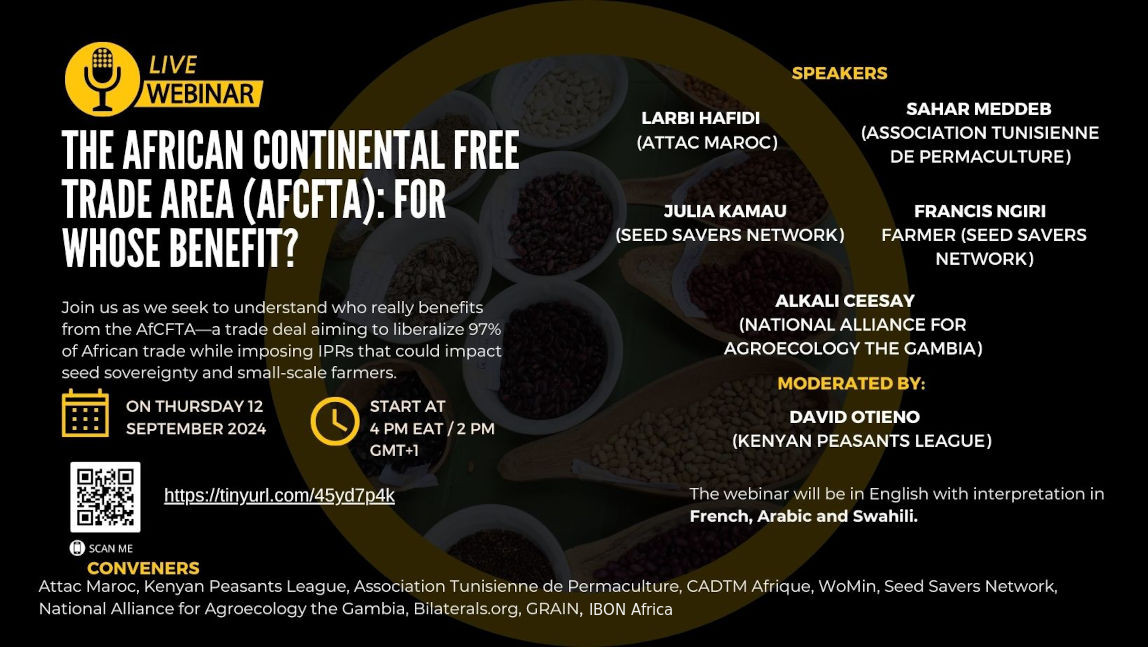The African Continental Free Trade Area (AfCFTA): for whose benefit?
Todas las versiones de este artículo: [عربي] [English] [français] [Kiswahili]
Webinar
Date: Thursday 12 September, 2024
Time: 4 pm EAT / 2 pm GMT+1
Zoom link: https://tinyurl.com/45yd7p4k
Livestream: https://www.facebook.com/PanAfricanismToday
The webinar will be in English with interpretation in French, Arabic and Swahili.
Since the early 2000s, Africans said “NO to EPAs” (Economic Partnership Agreements) that were being pushed by Europe to continue its colonial plunder of the global South. Now, another neoliberal project is looming over the African continent: the African Continental Free Trade Area (AfCFTA). This mega trade agreement is an initiative of the African Union, supported by major economic players such as the United States, the European Union, China, the African Development Bank, the United Nations Conference on Trade and Development, the World Trade Organisation and the World Bank.
The AfCFTA aims to liberalise 97% of inter-African trade in goods. It also sets rules on trade in services, as well as intellectual property, investment and e-commerce. Trade in Africa has always been conducted informally by small scale traders, the majority of whom are women. The AfCFTA overlooks this reality, and focuses on boosting competition among corporations.
Since it came into force in May 2019, AfCFTA has remained an exclusive process with only a privileged few getting very clear and transparent information. While there is so much activity and movement around the AfCFTA, many citizens, who the agreement is purportedly meant improve their lives, are unaware or haven’t simply heard about the finer details of the agreement.
The main aim of this webinar is to collectively reflect on what does this trade deal mean for ordinary Africans in a time of deep climate, economic and food crises.
Moderator: David Otieno (Kenyan Peasants League)
Presenters:
• Larbi Hafidi (Attac Maroc): What’s the AfCFTA? How has it been negotiated? Who would be the biggest winners?
• Sahar Meddeb (Association Tunisienne de Permaculture): Implications for farmer-managed seed systems and seed sovereignty in Africa
• Julia Kamau (Seed Savers Network) Our responce against IPRs and UPOV
• Francis Ngiri (Seed Ambassador, Seed Savers Network) A farmers voice on the impacts of AfCFTA on small holder farmers.
• Alkali Ceesay (National Alliance for Agroecology the Gambia): What does it mean for small scale farmers?
Convenors: Attac Maroc, Kenyan Peasants League, Association Tunisienne de Permaculture, CADTM Afrique, WoMin, Seed Savers Network, National Alliance for Agroecology the Gambia, bilaterals.org, GRAIN, IBON Africa






